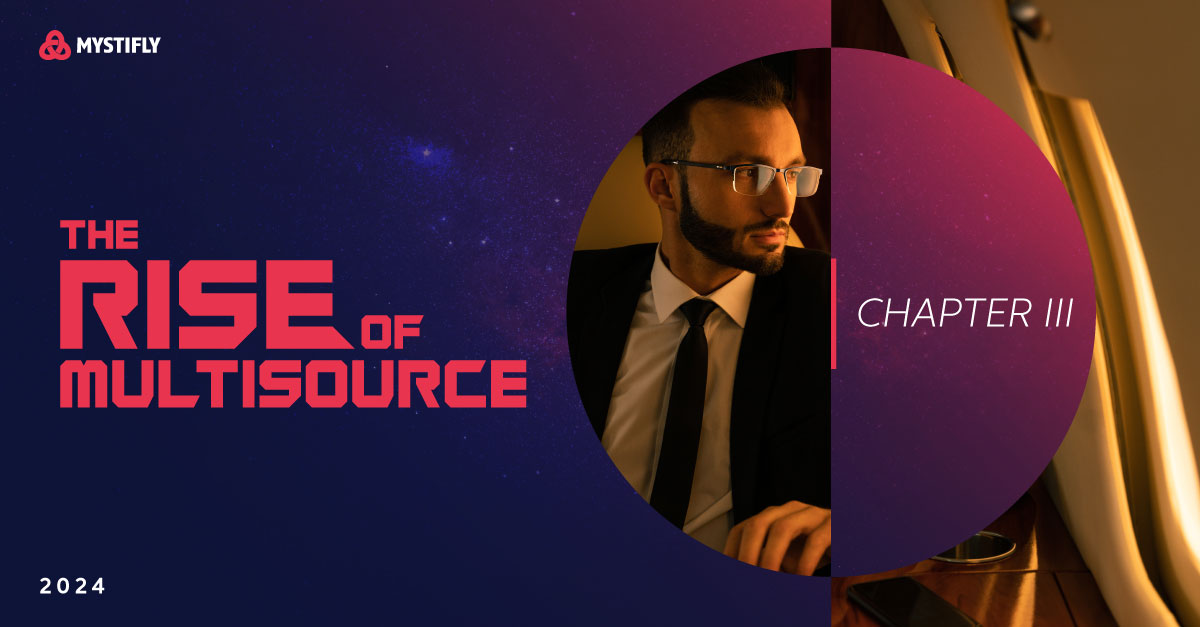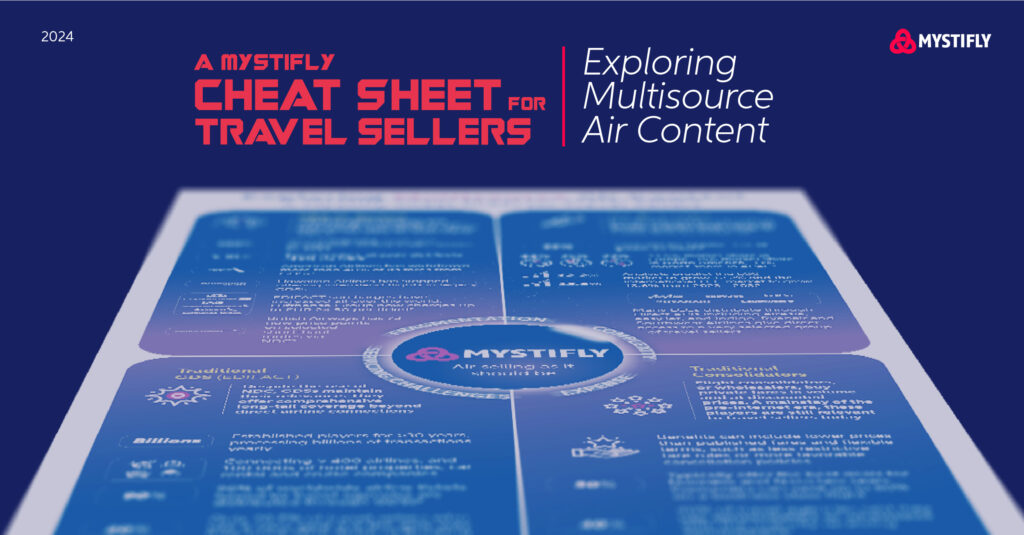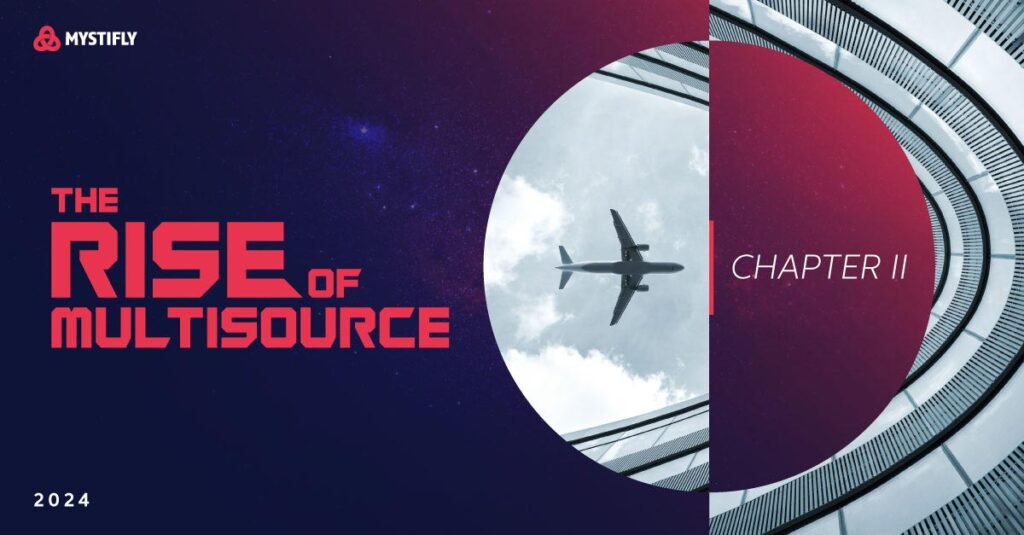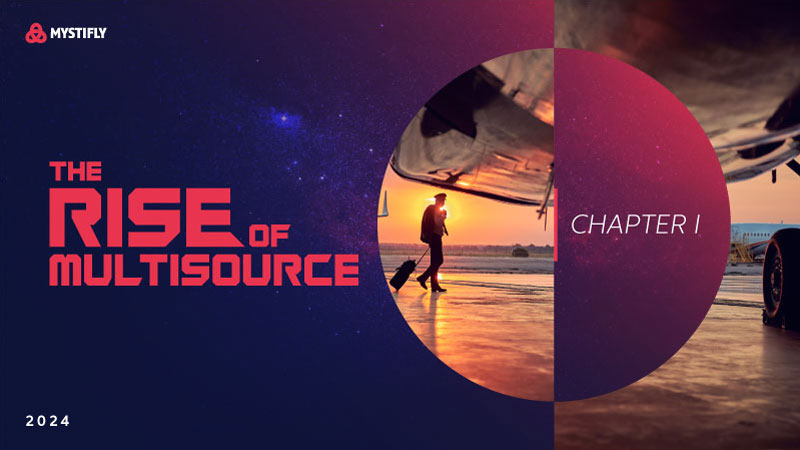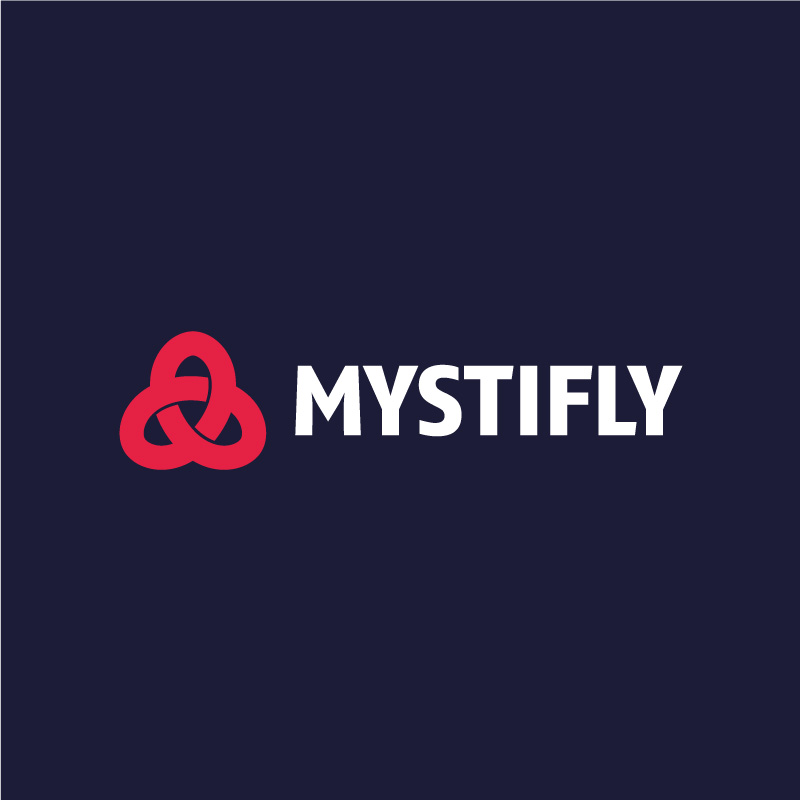Mystifly presents ‘The Rise of Multisource,’ a fresh series delving into the air-selling domain. This exploration uncovers an unexpectedly varied landscape of air content sources and travel sellers, revealing the key trends and dynamics shaping the industry along the way.
Chapter 2, “Goodbye Uniformity — Hello Innovation,” centers around the transformative impacts of the New Distribution Capability (NDC). The story celebrates this change for opening up new opportunities for all players.
This article will venture further into modern air distribution, introducing the Multisource – a richly eclectic galaxy of air content whose entities each bring potential value to travel sellers. In it, we will:
- Investigate the transformative power of NDC, a nebula of change and innovation.
- Encounter the swift, low-cost carrier (LCC) comets offering a direct channel to their services for decades
- Consider the GDS supergiants whose gravitational pull remains strong across the industry.
- Meet the star-cluster consolidators who connect sellers to discounted airfares
Meet the NDC airlines: Nebula
As discussed in our last chapter, NDC is a transformative movement that gives airlines the freedom to distribute offers outside of the traditional GDS (EDIFACT) model.
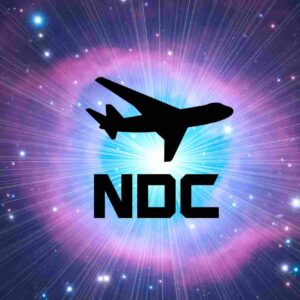 The airlines leading the charge with active NDC programs—those at the center of the NDC nebula—include some of the world’s most powerful full-service airlines, including American Airlines, United Airlines, Emirates, Hawaiian Airlines, Qantas, Lufthansa Group, Finnair, KLM, and British Airways. Several already get over 30% of their bookings through NDC[1] and their commitment to the NDC channel is clear.
The airlines leading the charge with active NDC programs—those at the center of the NDC nebula—include some of the world’s most powerful full-service airlines, including American Airlines, United Airlines, Emirates, Hawaiian Airlines, Qantas, Lufthansa Group, Finnair, KLM, and British Airways. Several already get over 30% of their bookings through NDC[1] and their commitment to the NDC channel is clear.
Given NDC’s exclusive focus on the indirect sales channel, travel seller adoption is essential for airlines to realize a return on investment. So, NDC-capable airlines have embraced a range of strategies to make this happen. Some airlines make it attractive for sellers to use their NDC channels by offering their best-priced deals exclusively through NDC. Others add surcharges to bookings made in other, non-NDC channels.
For example, American Airlines, a key player in the NDC transformation has recently introduced an NDC Incentives Program, which offers commissions to agents who book and ticket American flights through a “Qualified NDC Channel”[2]. American also announced from May 2024, only “preferred” agencies meeting NDC booking thresholds will enable their clients to earn AAdvantage points[3].
These developments – albeit controversial in some sectors – are successful in getting more travel sellers to incorporate NDC content into their portfolios.
Although airlines in the NDC nebula have the freedom to create personalized offers in the indirect (seller) channel, unfortunately, this remains a nascent opportunity. Currently, most airlines differentiate only on price or product availability, with minimal offer customization. But that is set to change as retailing practices mature and open up a whole new galaxy.
While travel sellers, notably corporates and TMCs, can forge direct relationships with airlines, only the largest may successfully negotiate fare discounts, given the slim profit margins on flights. NDC, in theory, gives sellers – and airlines – different abilities to negotiate, for example, perks like lounge access and baggage allowances or more flexibility in rebooking. Negotiating exclusive content and more real-time price points are new options with NDC.
Meet the LCCs: Comets
LCCs, known for their direct sales strategy via own websites or metasearch engines with the goal to minimize distribution expenses and “owning” traveler relationship, pivoted away from a pure B2C sales model. Airlines like EasyJet or IndiGo have extended their reach to travel sellers – through their direct-connect (non-NDC) APIs, which set the stage for the advent of NDC. Others like Ryanair and Southwest only give direct access to their content via API to a very selected group of travel sellers and restrict commercial usage.
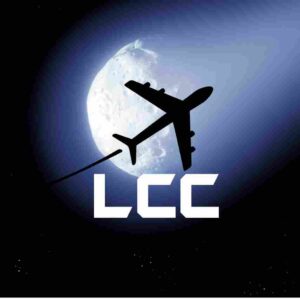 Some LCC content is so desired by travel sellers that multi sourcing becomes the only viable option to sell most logical flight connections to actual travellers.
Some LCC content is so desired by travel sellers that multi sourcing becomes the only viable option to sell most logical flight connections to actual travellers.
LCCs themselves are less incentivised to make investments into the NDC schema as they have already access to proprietary APIs fulfilling the business needs. This adds to the complexity of different standards in APIs and NDC versions being used.
Those who can’t be missed – the GDS Supergiants
GDS content is vast and varied, including not only air, but also hotel, car rental, and other travel essentials. For ages, the GDSs have maintained a dominant and extensive footprint across travel sellers. The GDSs’ one-size-fits-all model made it easy for travel sellers to access air content and service bookings post-sale and the commercial model was attractive to travel sellers.
 At the heart of the traditional GDS (EDIFCAT) business model are volume incentives. The GDSs reward travel sellers for reaching certain booking targets with monetary rewards and higher commission rates. Coupled with easy access to travel content, some travel sellers may find that GDS content represents an attractive opportunity.
At the heart of the traditional GDS (EDIFCAT) business model are volume incentives. The GDSs reward travel sellers for reaching certain booking targets with monetary rewards and higher commission rates. Coupled with easy access to travel content, some travel sellers may find that GDS content represents an attractive opportunity.
Travel sellers waiting for the GDSs to chart the course to NDC should note the three Western GDSs (Amadeus, Sabre, and Travelport) are progressing towards NDC but at an excruciatingly slow pace. NDC has been around since 2012 and the GDS were late to the voyage! The ability of the GDS to integrate NDC offers into their platforms while fulfilling the servicing capabilities that are an important part of the GDS value proposition is questioned by many industry experts. In addition, some commentators advise looking out for hidden fees that could exist in GDS NDC-enabled platforms[4].
Meet the Airline Consolidators: Star-Clusters
Airline Consolidator “star-clusters” are wholesalers who acquire unsold seats in bulk from airlines at discounted rates and then market them to travel sellers at lower prices than published fares. By sourcing this air content, travel sellers can benefit from the more flexible terms that sometimes come with consolidator tickets, such as less restrictive fare rules or more favorable cancellation policies. However, different restrictions or conditions can introduce complexity in booking and post-booking processes.
 The availability of NDC, LCC, GDS, and consolidator content makes for a complex Multisource landscape. Harnessing the diverse spectrum of air content available in Multisource presents travel sellers with significant commercial advantages, including increased revenue potential, strategic market differentiation, and elevated levels of customer satisfaction.
The availability of NDC, LCC, GDS, and consolidator content makes for a complex Multisource landscape. Harnessing the diverse spectrum of air content available in Multisource presents travel sellers with significant commercial advantages, including increased revenue potential, strategic market differentiation, and elevated levels of customer satisfaction.
Grappling with the complexity of Multisource may seem a path fraught with unsurmountable challenges for some sellers, but luckily, there is an easier way. There is a new player in town, the new generation aggregator, which makes it easy to unlock opportunities in this brave new world. But more on that in a later chapter.
Next, we will explore the travel seller cosmos. Who are the travel sellers, what do they need, and what role do they play in modern airline retailing? We pick up this strand of the story in the next chapter of the Rise of Multisource, “Chapter 3 – Meet the Sellervserse.”
If you are a travel seller and want to realize the value of this new air-selling landscape, connect with Mystifly to learn how you can experience air-selling as it should be.
To stay tuned, register for updates here or follow us on LinkedIn.
[1] https://www.businesstravelexecutive.com/bte-custom-content/ndc-a-state-of-flux
[2] https://www.exploreamerican.com/globalsales/wp-content/uploads/2020/11/faq.pdf
[3] https://www.travelweekly.com/Travel-News/Airline-News/American-new-rules-for-travel-agencies
[4] https://www.businesstravelnewseurope.com/TMC-Distribution/NDC-what-should-buyers-do-now

